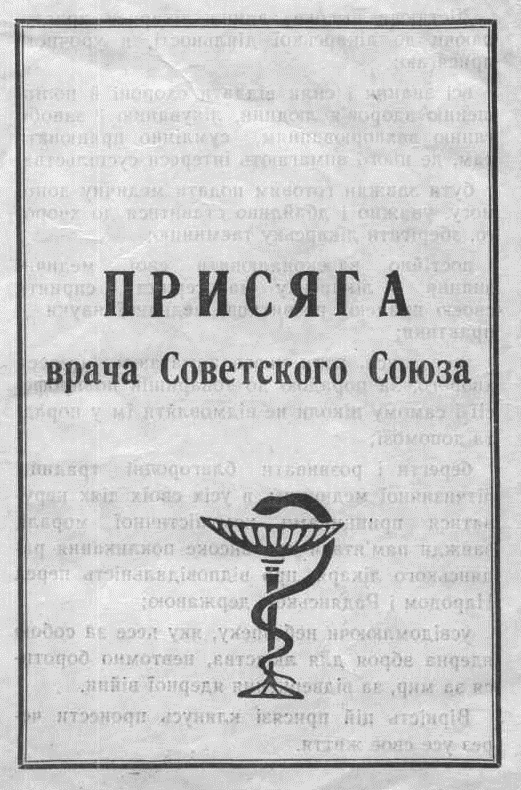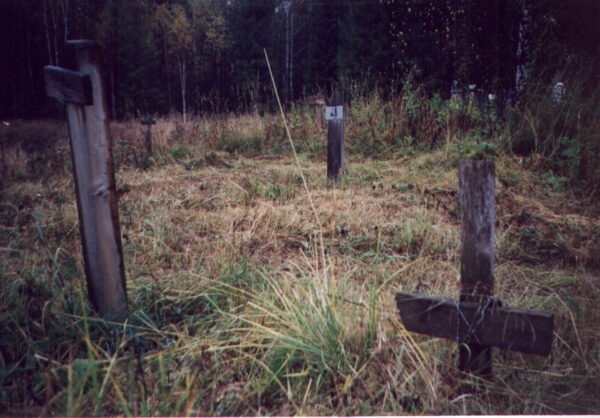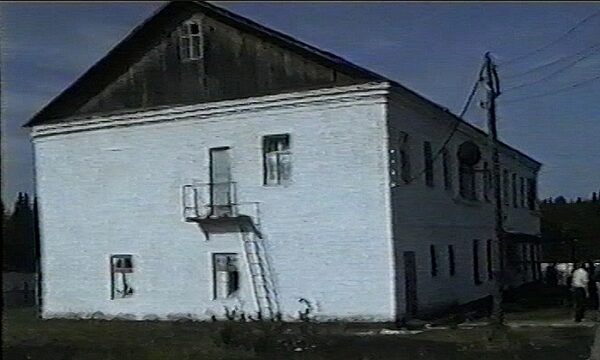Doctors in the Soviet Union did not give the Hippocratic oath. But they did give the oath approved by the Decree of the Presidium of the Supreme Council of the USSR, which included the words: “…I solemnly swear: to devote all knowledge and efforts to protecting and improving human health…”
Information from the human rights bulletin “Chronicle of current events” (CCE):
“The medical commission removed the invalid status from the prisoner, the Lithuanian Kurkis, who was doing a 25-year sentence. Kurkis suffered from an ulcerous disease and had not worked for many years. After the commission’s decision, he was sent to do hard labor – to plough “no-man’s land”. In the first day the ulcer ruptured. The head of camp No. 35 Pimenov called lieutenant colonel T. P. Kuzntesov in Perm (the surgeon of this camp); he refused to make a call, saying the weather was bad. Kurkis died”
CCE, issue 30, December 1972
Medicine is perhaps the most horrible and shameful thing that existed in the Perm political camps. The actions of the surgeon Kuznetsov were no exception, but rather the rule. The Chronicle of Current Events alone contains over 10 reports on the deaths of prisoners caused by refusing or delaying medical assistance. And how many deaths were not mentioned in the chronicle, and not noticed by anyone at all?
Every political camp had its own medical unit, and the Perm-35 camp had a two-storey hospital for all three of the political camps, which had been built recently and had all the necessary equipment. The hospital was always fully staffed with medical personnel. The camp medics were paid a considerable extra salary for the “hazardous nature” of their service, but of the almost 2,000 reports in the “Chronicle” about incidents at the Perm political camps, over 150 are connected with medical problems.
Some publications:
“10 people, including two with one leg, were found eligible for work by the medical commission. Many prisoners had their invalid status of many years removed. Lieutenant colonel of the medical service T.P. Kuznetsov was appointed chairman of the medical commission, who did not ask medical questions, but only asked: “What sentence? What charge?” The replies were sufficient to make a decision” – CCE, issue 30
“In the camp the prisoner Skobas died. Shortly before his death he went to see a doctor, but was not put in hospital ‘because there were no places’. He was doing hard physical labor,” CCE, issue 38.
“It was learned that the administration of the camp and the UKGB in Skalny asked head doctor Kuverden not to give prisoners exemptions from work, as the camp was not fulfilling the plan,” CCE, issue 42.
“S. Kovalyov went to the camp doctors requesting to be sent to the Leningrad hospital for prisoners, to have an operation. The head of the camp medical unit Petrov told Kovalyov: ‘We’ll treat you if you behave well,’” CCE, issue 42.
“The patient I. Ogurtsov was sent to work at the boiler room. The doctor Chepkasova initially exempted him from work, but then at the demand of the administration cancelled the exemption,” CCE, issue 51.





